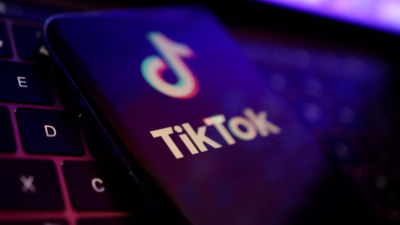Bobby Kotick, the former chief executive of Activision Blizzard, is reportedly exploring the possibility of acquiring TikTok, amidst growing concerns that the popular video-sharing app could face a ban in the United States. According to The Wall Street Journal, Kotick has engaged in discussions with ByteDance, the Chinese technology company that owns TikTok, regarding a potential buyout that could amount to hundreds of billions of dollars.
This development coincides with the introduction of a new bill by US lawmakers that would require ByteDance to divest its ownership of TikTok within a six-month timeframe, or face prohibition from US app stores.

President Joe Biden has indicated his willingness to sign the bill into law should it successfully pass through Congress.
The Wall Street Journal further reports that Kotick and OpenAI CEO, Sam Altman, discussed the possibility of partnering in a joint bid for TikTok during a recent dinner meeting.
Kotick's interest in TikTok surfaces following a controversial conclusion to his 30-year tenure at the helm of Activision Blizzard, which was acquired by Microsoft last year. The company was embroiled in a lawsuit alleging a pervasive culture of sexual harassment and discrimination under Kotick's leadership. The Wall Street Journal also reported that Kotick was aware of the misconduct but failed to fully inform the board of directors. While Kotick has faced accusations of harassment, Activision Blizzard has dismissed the reports as "misleading".
Lawmakers have voiced concerns regarding data privacy and TikTok's ties to China. The Biden administration has already implemented a ban on the app on state-issued devices, and President Biden has expressed his support for a broader ban in the US. Conversely, former President Donald Trump, who initially sought to ban TikTok, has since reversed his stance, arguing that such a ban would disproportionately benefit TikTok's competitors, such as Facebook and YouTube.
As the bill targeting TikTok gains momentum, the app has urged its American users to advocate on its behalf, prompting users to contact their elected representatives. The bill, having cleared a committee vote last week, is widely expected to pass a vote in the House of Representatives on Wednesday. If approved, it will then proceed to the Senate, before potentially being signed into law by the President of the United States.
Newer articles
Older articles
 Gavaskar Calls for Kuldeep Yadav's Inclusion in Second Test Amid Bumrah Fitness Concerns, Cites Edgbaston Spin Advantage
Gavaskar Calls for Kuldeep Yadav's Inclusion in Second Test Amid Bumrah Fitness Concerns, Cites Edgbaston Spin Advantage
 Indian Astronaut Shukla Arrives at ISS, Ushering in New Era for Space Program
OR
India Celebrates as Shukla Reaches ISS, Advancing Ambitious Space Goals
Indian Astronaut Shukla Arrives at ISS, Ushering in New Era for Space Program
OR
India Celebrates as Shukla Reaches ISS, Advancing Ambitious Space Goals
 Rishabh Pant Revolutionizing Cricket, Says Greg Chappell
Rishabh Pant Revolutionizing Cricket, Says Greg Chappell
 Toxic Workplace Warning Signs: Spot the Red Flags Early
Toxic Workplace Warning Signs: Spot the Red Flags Early
 Global Immunization Crisis: Millions of Children at Risk as Vaccine Coverage Lags, Study Reveals
Global Immunization Crisis: Millions of Children at Risk as Vaccine Coverage Lags, Study Reveals
 Indian Cricket Star Mukesh Kumar and Wife Divya Singh Announce the Arrival of Baby Boy
Indian Cricket Star Mukesh Kumar and Wife Divya Singh Announce the Arrival of Baby Boy
 Moto G54 Price Slashed in India: Check Out the Discounted Rates and Specs
Moto G54 Price Slashed in India: Check Out the Discounted Rates and Specs
 IRCTC Launches AI Chatbot 'AskDisha 2.0' to Revolutionize Train Ticket Booking and Customer Service
IRCTC Launches AI Chatbot 'AskDisha 2.0' to Revolutionize Train Ticket Booking and Customer Service
 Cummins Lauds Australia's Dominant Start to WTC Campaign After West Indies Series Win
Cummins Lauds Australia's Dominant Start to WTC Campaign After West Indies Series Win
 Smith Targets Test Return After Innovative Baseball Cage Rehab in New York
Smith Targets Test Return After Innovative Baseball Cage Rehab in New York